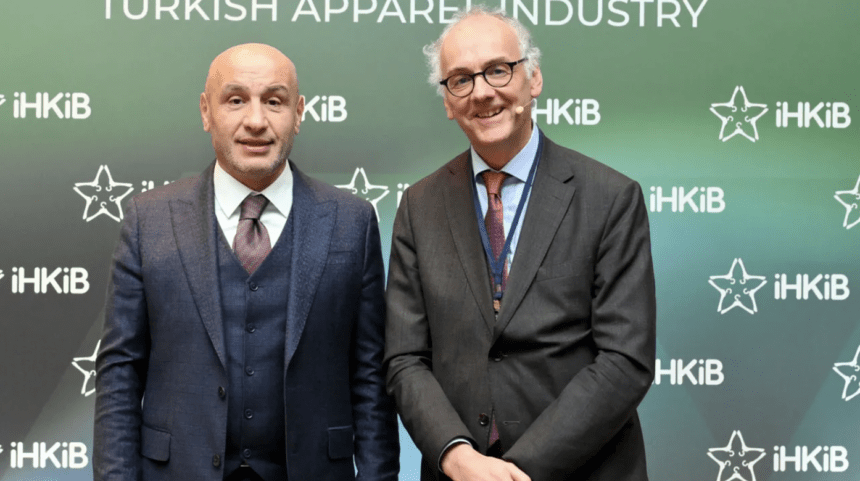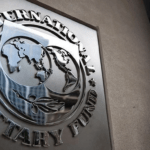EURATEX, the European Apparel and Textile Confederation, announced the 15-point manifesto of the textile and apparel industry ahead of the European Parliament elections.
The manifesto emphasizes that updating the customs union will eliminate the problems that limit the potential of the EU-Turkey partnership, and suggests developing support mechanisms for the Turkish textile and apparel ecosystem for transformation.
The fashion industry, which has a strategic importance for the Turkish economy with its value-added production, employment and exports, came together with representatives of global brands and purchasing offices at the ‘Green Transformation’ summit. At the meeting hosted by the Istanbul Ready-to-Wear and Apparel Exporters’ Association (İHKİB), the work carried out in the process of compliance with the Green Consensus was scrutinized and the expectations of the Turkish fashion industry from the parties were expressed.
Dirk Vantyghem, Director General of EURATEX, the European Federation of Apparel and Textiles, made a presentation at the meeting attended by representatives of relevant ministries, the United Nations, the World Bank, the European Bank for Reconstruction and Development, as well as national and international stakeholders, and announced the 15-point manifesto of the textile and apparel industry ahead of the European Parliament elections.
Emphasizing the importance of focusing on cooperation with Turkey, Vantyghem pointed out that it is critical to inform European decision-makers about the needs, challenges and expectations of the textile and apparel industry, noting that up to 80 percent of policy measures affecting companies are decided at the European level. The manifesto also called on EU leaders to sign “balanced FTAs” and emphasized that the modernization of the Customs Union with Turkey will lead to stronger business relations and enhanced cooperation, and help address the current challenges that limit the full potential of a strong EU-Turkey partnership. The manifesto also proposes to develop support mechanisms under this Customs Union to facilitate the implementation of the transformation together with the Turkish textile and apparel ecosystem.
EURATEX Director General Vantyghem pointed out that the manifesto summarizes the demands addressed to all policy makers at national and European level who want to engage in the European agenda after the elections.
“We will turn green transformation into an opportunity”
Speaking at the opening of the Green Transformation summit, Mustafa Gultepe, President of TIM and İHKİB, underlined that Turkey is a global player in ready-to-wear clothing. Reminding that Turkey realizes approximately 3.5 percent of the world’s ready-to-wear exports, Gültepe continued as follows: “As İHKİB, we aim to increase our annual exports of around USD 20 billion to USD 40 billion. The road to this target passes through Europe and the USA. Because our biggest market in ready-to-wear is the European Union. We make 60 percent of our total ready-to-wear exports to EU countries. When we add other European countries and the USA, the rate approaches 75 percent. Although we are working on alternatives for USD 40 billion of exports, we need to focus more on the European and US markets.”
Gultepe pointed out that the Turkish ready-to-wear sector, which has a long-standing cooperation with European and American brands, is differentiated from its competitors with its know-how, speed, production quality and design power, and emphasized the importance of geographical proximity to Europe.
Noting that they would like to turn the green transformation into an opportunity for the fashion industry, Gültepe said, “We think that the global brands we have been working with for years should not only focus on price. As in production, we should be able to base our collaborations sustainably.”
EURATEX’s 15-point manifesto
1. Focus on smarter regulation to increase competitiveness
2. Promote training and employment in the industry
3. Ensure access to sustainable energy sources at competitive prices
4. Invest in innovation and digitalization
5. Add economic realism to the Green Deal
6. Prevent fragmentation of the EU single market
7. Set realistic goals and timetables for new legislation
8. Ensure global sustainability commitments for a level playing field
9. Adopt balanced FTAs, negotiate with the US
10. Strengthen market surveillance and ensure regulatory compliance
11. Apply commercial defense measures where justified
12. Facilitate SMEs trade for European design and quality
13. Balance supply and demand for sustainable textiles
14. Incentives should be provided to consumers for sustainable textile products
15. Implement green public procurement










